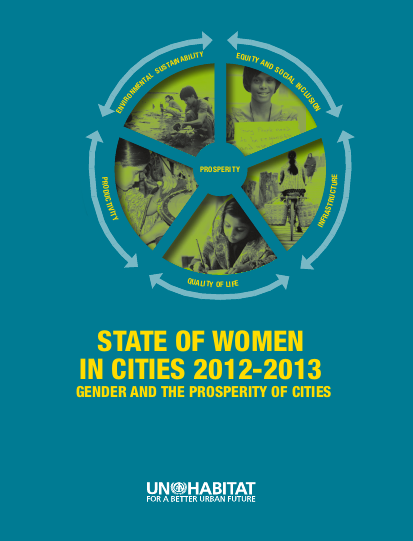
In focusing on gender in the prosperity of cities, the State of Women in Cities 2012/13 reflects growing support for two main, and quite positive, ideas about urbanisation. First, cities are associated with the generation of wealth. Second, urban women enjoy greater social, economic and political opportunities and freedoms than their rural counterparts. However, just as prosperity is not an inevitable outcome of urbanisation, nor is gender equality. There is considerable evidence to suggest that barriers to women’s ‘empowerment’ remain widespread in urban environments. Nonetheless, broadening analysis away from the routine focus on women’s poverty in cities, to their shares of prosperity offers an unexpected advantage insofar as it draws attention to a major hiatus between gendered inputs and gendered outcomes in urban contexts. While women in most developing countries contribute significantly to the ‘prosperity of cities’ through providing essential services, contributing substantially to urban housing stock, provisioning economically for households, and enhancing the ‘quality of life’ in their homes and communities, they are often the last to benefit. This is evidenced in notable gender gaps in labour and employment, ‘decent work’, pay, tenure rights, access to, and accumulation of assets, personal security and safety, and representation in formal structures of urban governance.
Resource collections
- Accountability to affected populations (AAP)
- UN Habitat - Urban Response Collection
- Urban Response - Urban Crisis Preparedness and Risk Reduction
- Urban Response Collection - Community Engagement and Social Cohesion
- Urban Response Collection - Economic Recovery
- Urban Response Collection - Environment and Climate Change
- Urban Response Collection - Housing, Land and Property
- Urban Response Collection - Urban Crisis Response, Recovery and Reconstruction
- Urban Response Collection - Urban Resilience